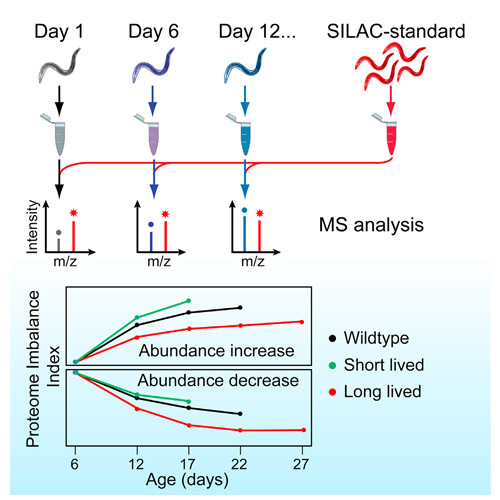Widespread Proteome Remodeling and Aggregation in Aging C. elegans
07-May-2015
Cell, Volume 161, Issue 4, p919–932, http://dx.doi.org/10.1016/j.cell.2015.03.032
Aging has been associated with a progressive decline of proteostasis, but how this process affects proteome composition remains largely unexplored. Here, we profiled more than 5,000 proteins along the lifespan of the nematode C. elegans. We find that one-third of proteins change in abundance at least 2-fold during aging, resulting in a severe proteome imbalance. These changes are reduced in the long-lived daf-2 mutant but are enhanced in the short-lived daf-16 mutant. While ribosomal proteins decline and lose normal stoichiometry, proteasome complexes increase. Proteome imbalance is accompanied by widespread protein aggregation, with abundant proteins that exceed solubility contributing most to aggregate load. Notably, the properties by which proteins are selected for aggregation differ in the daf-2 mutant, and an increased formation of aggregates associated with small heat-shock proteins is observed. We suggest that sequestering proteins into chaperone-enriched aggregates is a protective strategy to slow proteostasis decline during nematode aging.











